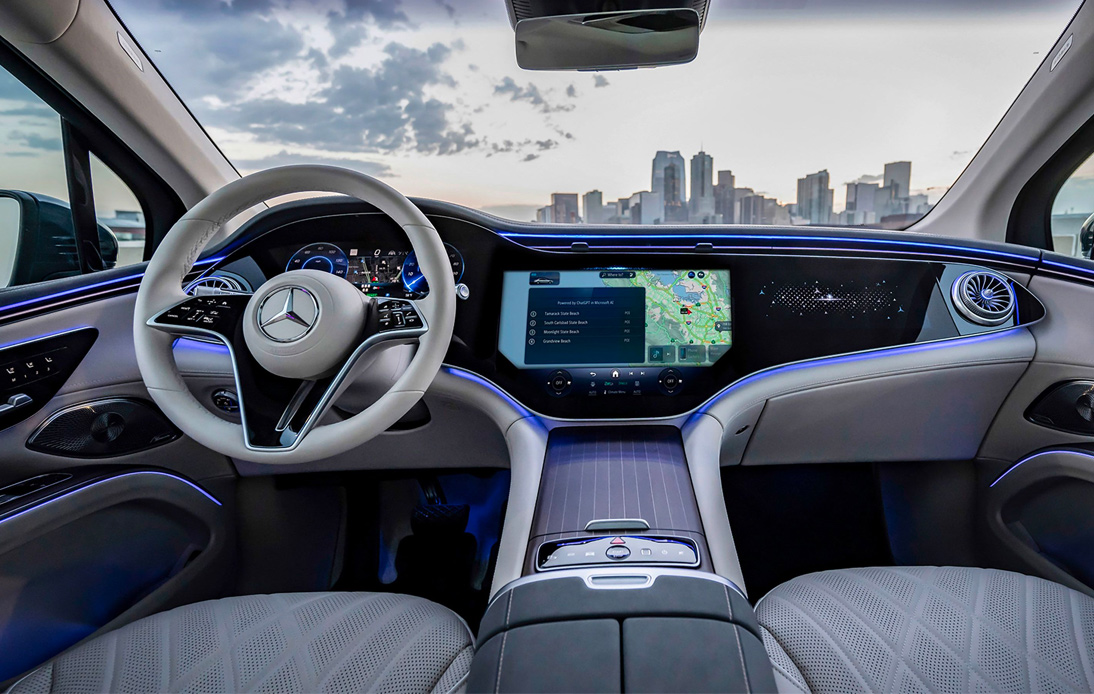
Mercedes-Benz and Microsoft have entered into an agreement to integrate ChatGPT into Mercedes-Benz vehicles in the US.
ChatGPT, a “generative artificial intelligence” developed by Microsoft, has the capability to engage in convincingly human-like conversations.
Existing Mercedes vehicles come equipped with voice-command functionalities, enabling drivers to say, “Hey, Mercedes,” followed by a brief command, allowing actions such as temperature adjustment in the vehicle, navigation destination selection, or phone calls.
The integration of ChatGPT is expected to enhance these voice commands, making them more seamless and intuitive, while potentially providing extra features, as per Microsoft.
The system’s role will extend beyond just reacting to basic commands, and facilitating more organic-seeming conversations.
The system will be capable of retaining the context of the ongoing conversation and interacting back and forth with the driver or passengers.
With the inclusion of ChatGPT, the system could entertain a broader range of inquiries, even those unrelated to the car or driver. For example, drivers might request a swift recipe or ask about the optimal time of the year to visit Colorado.
Additionally, the ChatGPT system can communicate with other applications to execute tasks like booking a restaurant table or buying movie tickets, as mentioned by Microsoft (MSFT).
US-based Mercedes owners equipped with the MBUX “infotainment” system will be able to trial the ChatGPT system starting from June 16, utilizing the voice command “Hey Mercedes, I want to join the beta program.”
ChatGPT has been utilized online to perform tasks like researching and authoring essays, choosing stocks, and occasionally, generating unhelpful replies to individuals in distress.
Over the past ten years or so, car manufacturers, including Mercedes, have developed increasingly advanced voice command systems for their vehicles.
These systems are promoted as being safer for drivers compared to buttons or touchscreens as they don’t require drivers to shift their gaze from the road.
Nevertheless, some studies suggest that the cognitive load needed to operate voice commands can still be a source of distraction.




















